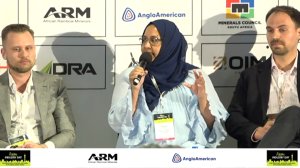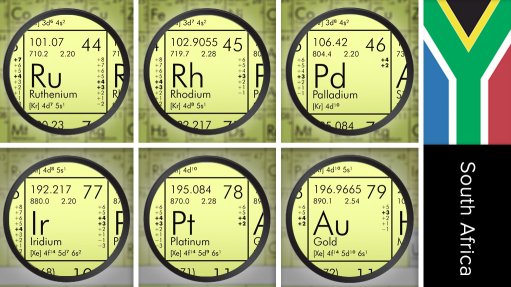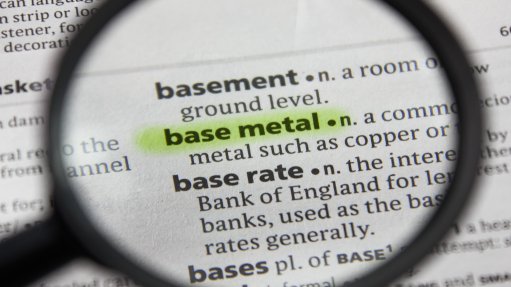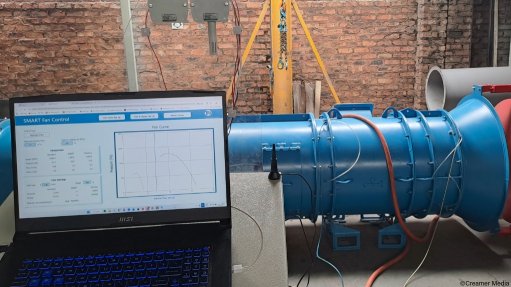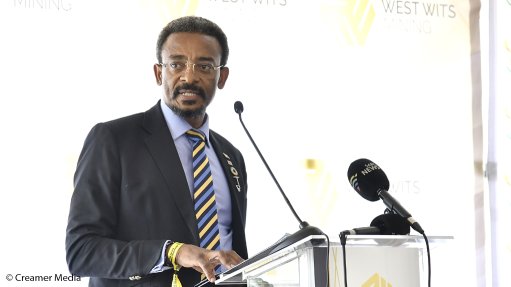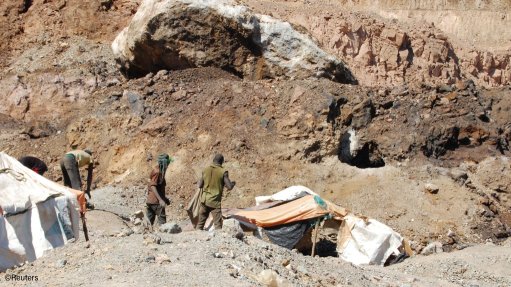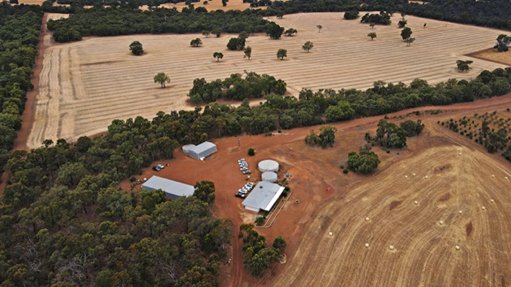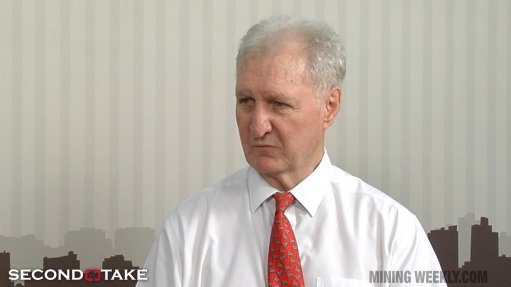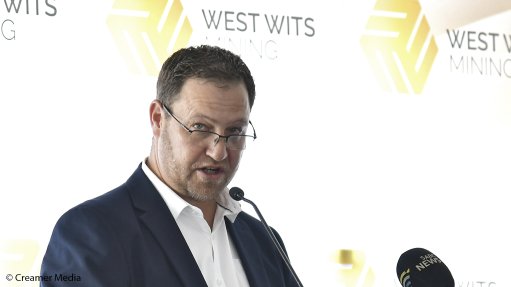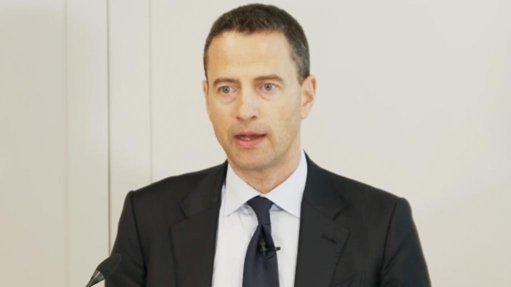South Africa's hydrogen corridor project shortlisted for JET funding, PGM Day hears

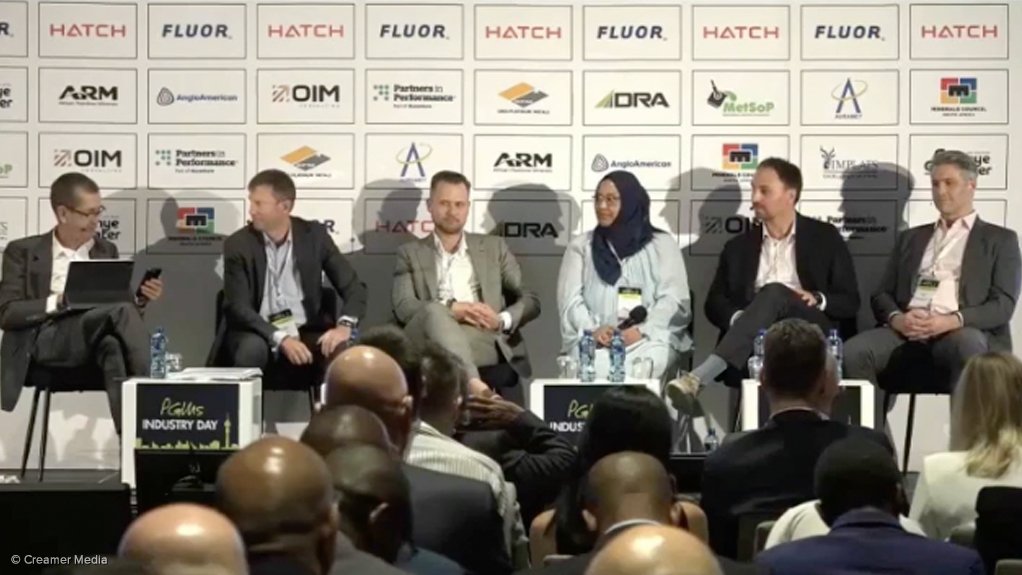
Platinum Group Metals Day covered by Mining Weekly's Martin Creamer. Video: Darlene Creamer.
The PGM Industry Day discussion panel.
Photo by Creamer Media
JOHANNESBURG (miningweekly.com) – South Africa’s rejigged green hydrogen corridor project, Project Rhynbow, has been shortlisted for just energy transition (JET) investment project funding, this week’s Platinum Group Metals (PGM) Industry Day audience heard on Thursday.
“It's a great achievement for us, as South Africa, to be able to get to this point, and the best achievement will be when tyres hit the road,” Anglo American principal market development Fahmida Smith outlined during a PGM Industry Day panel discussion covered by Mining Weekly. (Also watch attached Creamer Media video.)
Project Rhynbow is a collaboration between Anglo American Platinum, Bambili Energy, Sasol, and Total Energies with Accenture as secretariat and is focused on creating a local hydrogen economy focused on mobility and stationary applications.
The anticipated timeline for vehicles on the road is 18 to 24 months post funding of the project, which consists of fuel cell electric vehicles and dual fuel vehicles that both require hydrogen refuelling infrastructure. Having been shortlisted for JET funding, it will now undergo a detailed due diligence process.
The panel discussion in which Project Rhynbow was raised was chaired by mining luminary Bernard Swanepoel and led by PwC Africa energy, utilities and resources leader Andries Rossouw, with participants made up of World Platinum Investment Council director of research Edward Sterck, Heraeus Precious Metals head of trading Dominik Sperzel, Platinum Guild International Hong Kong CEO Tim Schlick, Nornickel CEO of Palladium Center Dmitry Izotov, and Smith, who explained that the project's design allows for green hydrogen refuelling infrastructure to be added as corridor demand increases.
The "at scale" or "scalable" project frameworks allow for green hydrogen refuelling infrastructure to be sized according to utilisation or vehicles that need to be supported.
Being part of the Hydrogen Valley Project developed by the partners and the Department of Science, Technology and Innovation, it was awarded strategic integrated project, or SIP, status in October 2023.
The project’s current focus was on having infrastructure that was sufficient for the number of vehicles needed on the road, “for what we refer to as milk runs, for example”, Smith remarked.
“One of the things that could change is the pace at which the hydrogen economy takes off," said Sterck.
“Clearly, that's been slower than we have been anticipating, and it's probably just worth considering why. I think the main thing comes down to putting the horse in front of the cart, and that is the production of green hydrogen at scale, at a low enough levelised cost of hydrogen, with the infrastructure in place to distribute that hydrogen and get it to end-users, making it available and making for them these decisions, for example, a fuel cell electric vehicle.
“That requires big subsidies. Now we've known about those numbers for a while, but the pace at which those subsidies have flowed has been much slower than we had anticipated, and they are beginning to come now,” Sterck pointed out.
Products that Heraeus of Germany is supplying go beyond electrolysis, the PGM-based process from which hydrogen is generated, into purification, fuel cells, which turn hydrogen back into green electricity, and into the transport of hydrogen, the latter being very important owing to hydrogen likely being produced in regions where it will most likely not be totally consumed, such as the outlook in Southern Africa.
“I can say this as a German. We’re a big energy importing country and ultimately the hydrogen has to come to Germany somehow, and Japan, Korea, are countries that have similar problems that we do have.
“And we, for example, believe in chemical binders like green ammonia. We've done a nice paper on ruthenium use in hydrogen transportation, in particular. It's not consuming a lot of ounces at the moment, but we believe ruthenium has a bright future,” said Sperzel.
Izotov, with 100 patents, is setting out to provide the world with a new view of palladium. With the use of AI, his Palladium Centre is working closely with refiners to bring to the market, not only new technologies, but also to teach the market how to recycle.
“Our approach is to become a technological partner for PGM product producers and basically what we do is find the project where palladium can give very clear competitive advantages.
“We make the prototypes and then arrange wide industrial testing among the end-users, collect the feedback, improve the product, and then provide licences to the producers of the PGM materials,” Izotov explained.
“This is done to the mutual benefit for everybody. Local producers can produce more on their capacities. We get more palladium demand. We drive the price and it’s a win-win model for everybody,” he added.
Article Enquiry
Email Article
Save Article
Feedback
To advertise email advertising@creamermedia.co.za or click here
Press Office
Announcements
What's On
Subscribe to improve your user experience...
Option 1 (equivalent of R125 a month):
Receive a weekly copy of Creamer Media's Engineering News & Mining Weekly magazine
(print copy for those in South Africa and e-magazine for those outside of South Africa)
Receive daily email newsletters
Access to full search results
Access archive of magazine back copies
Access to Projects in Progress
Access to ONE Research Report of your choice in PDF format
Option 2 (equivalent of R375 a month):
All benefits from Option 1
PLUS
Access to Creamer Media's Research Channel Africa for ALL Research Reports, in PDF format, on various industrial and mining sectors
including Electricity; Water; Energy Transition; Hydrogen; Roads, Rail and Ports; Coal; Gold; Platinum; Battery Metals; etc.
Already a subscriber?
Forgotten your password?
Receive weekly copy of Creamer Media's Engineering News & Mining Weekly magazine (print copy for those in South Africa and e-magazine for those outside of South Africa)
➕
Recieve daily email newsletters
➕
Access to full search results
➕
Access archive of magazine back copies
➕
Access to Projects in Progress
➕
Access to ONE Research Report of your choice in PDF format
RESEARCH CHANNEL AFRICA
R4500 (equivalent of R375 a month)
SUBSCRIBEAll benefits from Option 1
➕
Access to Creamer Media's Research Channel Africa for ALL Research Reports on various industrial and mining sectors, in PDF format, including on:
Electricity
➕
Water
➕
Energy Transition
➕
Hydrogen
➕
Roads, Rail and Ports
➕
Coal
➕
Gold
➕
Platinum
➕
Battery Metals
➕
etc.
Receive all benefits from Option 1 or Option 2 delivered to numerous people at your company
➕
Multiple User names and Passwords for simultaneous log-ins
➕
Intranet integration access to all in your organisation


